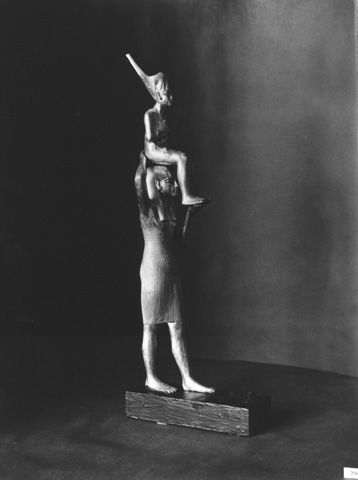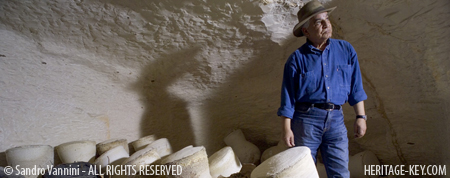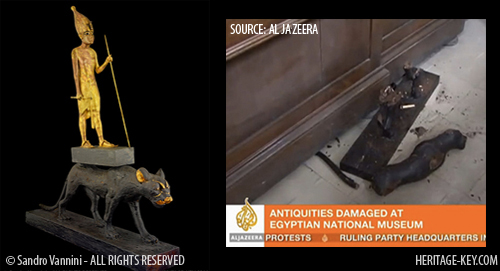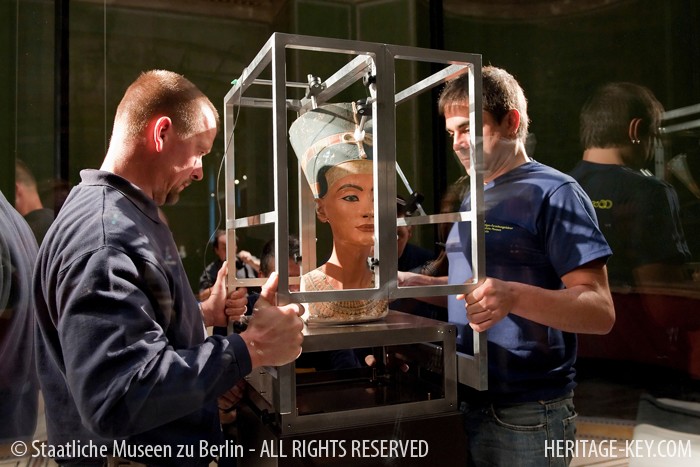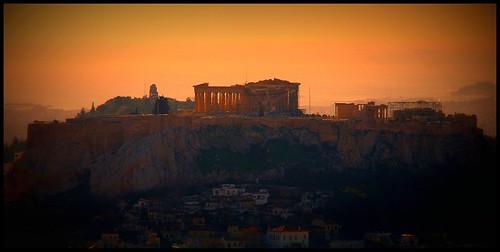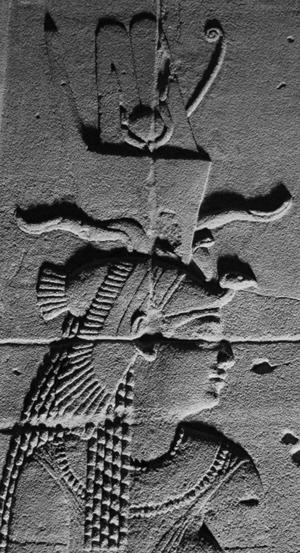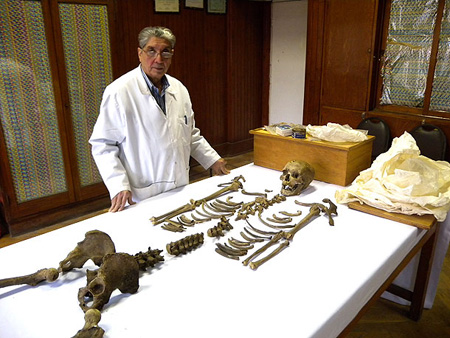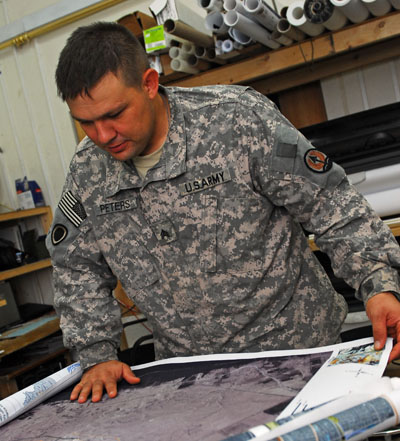An inventory check at the Cairo Museum, Egypt – two weeks after the protests at the capital lead to a break-in at the national museum – shows that not all of ancient Egyptian treasures are accounted for. Amongst the missing antiquities – ranging from little shabtis to larger stone statues – are objects that were discovered in King Tuts tomb. Dr. Zahi Hawass, Egypts Minister of State for Antiquities Affairs, announced today that the staff of the database department at the Egyptian Museum, Cairo have given him their report on the inventory of objects at the museum following the January…
-
-
Dr Zahi Hawass, has been promoted in the shake up of Egyptian President’s Hosni Mubarak’s new cabinet according to a report from AP. Formerly the Vice Minister for Culture, and the Secretary General of the Supreme Council of Antiquities (SCA), Dr Hawass will now take the role as Minister of a newly created department – the State Ministry for Antiquities. Literary critic Dr Gaber Asfour has been named the new Minister of Culture, replacing the long-serving Farouk Hosni. The cabinet shake up comes in the wake of political turmoil across Egypt, which saw a lack of police protection for key…
-
As the protests in Egypt gained momentum over the weekend, reports came out that the ruling National Democratic Party headquarters were ablaze, a building which is next door to the Egyptian Museum in Cairo, where looters damaged several priceless artefacts and mummies, including contents of King Tutankhamun’s Tomb. When a curfew was declared at 6pm in Cairo, all but three police officers abandoned their posts at the Egyptian Museum in Tahrir Square, the heart of the capital where protesters are focussing their anger against President Hosni Mubarak. Like many famous Egyptian attractions such as the Pyramids of Giza, the Egyptian…
-
The Supreme Council of Antiquities announced today that Secretary General Dr. Zahi Hawass has sent an official request for the famous bust of Queen Nefertiti to be returned to Egypt. This request was approved by the Prime Minister of Egypt, Dr. Ahmed Nazif, and Minister of Culture, Farouk Hosny, after four years of research by a legal committee composed of legal personnel and Egyptologists. Update: Response from the Prussian Cultural Heritage Foundation, which states the letter was _not_ signed by Egypt’s Prime Minister, and thus is not official, in the comments. The request letter was send to Dr. Hermann Parzinger,…
-
Key Dates Athens has been inhabited continuously for over 7,000 years. It became ancient Greece’s leading city in the 5th century BC, and went on to enjoy a period of cultural richness beyond parallel, before experiencing mixed fortunes in the Byzantine, Crusader and Ottoman periods. It became the capital of an independent Greek state in 19th century. Athens Greece Key People Athens is named after the Greek goddess Athena, daughter of Zeus. It’s associated with almost every great name from classical Greece and beyond: philosphers such as Socrates, Aristotle and Plato, dramatists such as Aeschylus, Aristophanes, Euripides and Sophocles, statesmen…
-
A unique queens crown with ancient symbols combined with a new method of studying status in Egyptian reliefs forms the basis for a re-interpretation of historical developments in Egypt in the period following the death of Alexander the Great. In the thesis ‘The Crown of Arsino II’, Maria Nilsson shows that Cleopatra VII was not the only Ptolemaic female pharaoh Queen Arsino II came first, 200 years earlier. Nilsson argues that Arsino (316-270 BC) should be included in the official pharaonic king list as Ptolemy II’s co-regent; her royal authority should be considered equivalent to Hatshepsut, Tawosret and Amenirdis II,…
-
A unique queen’s crown with ancient symbols combined with a new method of studying status in Egyptian reliefs forms the basis for a re-interpretation of historical developments in Egypt in the period following the death of Alexander the Great. In the thesis ‘The Crown of Arsinoë II’, Maria Nilsson shows that Cleopatra VII was not the only Ptolemaic female pharaoh – Queen Arsinoë II came first, 200 years earlier. Nilsson argues that Arsinoë (316-270 BC) should be included in the official pharaonic king list as Ptolemy II’s co-regent; her royal authority should be considered equivalent to Hatshepsut, Tawosret and Amenirdis…
-
From a variety of sources, we know of hundreds of sports and games in the ancient world, some of which one can be traced from the beginning of writing in about 3,000 BC to the time of the Middle Ages. Many of these pursuits played a prominent role in their respective societies and transcended mere sport to become associated, for example, with religion, entertainment, the military, and social customs. Several sports listed below have parallels in the modern world even though in some cases there may be no direct ancestry. I have extended the discussion to include (in one instance)…
-
The royal tomb of Pharaoh Psusennes I is said to be one of the most spectacular discoveries ever made in Egypt. So, why hasn’t the world heard about it? And what does it reveal about Ancient Egypt? Find out in ‘Secrets of the Dead:The Silver Pharoah’, premiering this Wednesday. Tanis, Egypt, circa 1939. An excavation team led by French archaeologist Pierre Montet unearthed an intact royal burial chamber (NRT III), which containedtreasures that (almost) rivals the riches found in Tutankhamuns tomb almost two decades before. One of the most spectacular discoveries inside the crypt was the exquisite silver sarcophagus of…
-
The US military has been heavily criticised for its disregard for Iraq’s heritage sites since invading the country in 2003 – ancient minarets have been bombed, precious artefacts allegedly looted at the National Museum, and a full scale camp, including a helipad, constructed slap bang on top of Babylon. As part of a recent drive to demonstrate renewed sensitivity for the Cradle of Civilization’s venerable past, a US Army sergeant has set about creating a detailed map accurately pinpointing as many of Iraq’s estimated 1,200 archeological hotspots as possible. Sgt. Ronald Peters is a geospatial analyst with Multi-National Corps-Iraq C-7,…

